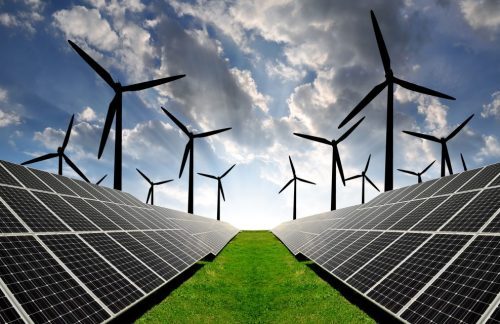Renewable Energy Solutions and their Requirements in Africa. AFSEA Struggling significantly in this area.
Renewable energy solutions have gained traction in Africa due to their potential to address the continent’s energy challenges while promoting sustainable development. Here are some key renewable energy solutions and their requirements in Africa:
Solar Power: Africa receives abundant sunlight throughout the year, making solar power an attractive renewable energy option. Solar photovoltaic (PV) systems can be deployed at various scales, from small off-grid installations to large utility-scale projects. Requirements for solar power in Africa include:
Investment in solar PV infrastructure, including panels, inverters, and storage systems.
Training programs to develop local expertise in solar technology installation, maintenance, and repair.
Policies and incentives to encourage solar energy adoption, such as feed-in tariffs, tax credits, and net metering schemes.
Wind Power: Certain regions in Africa have excellent wind resources suitable for wind power generation. Wind turbines can be installed both onshore and offshore to harness wind energy. Requirements for wind power in Africa include:
Wind resource assessment to identify suitable locations for wind farm development.
Infrastructure for transporting electricity from wind farms to consumers.
Regulatory frameworks to streamline the permitting process for wind energy projects.
Collaboration with local communities to address potential environmental and social impacts.
Hydropower: Africa has significant untapped hydropower potential, with many rivers suitable for hydroelectric dam construction. Large-scale hydropower projects can provide reliable electricity generation and contribute to economic development. Requirements for hydropower in Africa include:
Comprehensive environmental and social impact assessments to minimize negative effects on ecosystems and communities.
Investment in hydropower infrastructure, including dams, turbines, and transmission lines.
Capacity building to ensure proper operation and maintenance of hydropower facilities.
Mitigation measures to address potential downstream impacts on water availability and quality.
Biomass Energy: Biomass, including agricultural residues, forest biomass, and organic waste, can be used to produce heat, electricity, and biofuels. Biomass energy solutions can help address energy access challenges in rural areas. Requirements for biomass energy in Africa include:
Sustainable biomass resource management practices to prevent deforestation and land degradation.
Investment in biomass conversion technologies, such as biomass gasification and biogas digesters.
Education and training programs to promote the use of efficient biomass stoves and appliances.
Policies to incentivize the sustainable production and use of biomass resources, including subsidies and certification schemes.
Africa’s renewable assets also include biomass, minerals, and geothermal energy. Minerals such as lithium, graphite, and cobalt are needed for renewable energy technologies, including the production of solar panels and batteries for electric vehicles. Central and Southern Africa have abundant mineral resources essential to the production of electric batteries, wind turbines, and other low-carbon technologies.
The African Sustainable Energy Association (AFSEA) represents and promotes renewable energy solutions on the continent.
Overall, unlocking Africa’s renewable energy potential requires a combination of investment, policy support, and capacity building efforts to overcome technical, financial, and institutional barriers. By leveraging renewable energy solutions, Africa can achieve energy security, mitigate climate change, and promote inclusive growth and development.


Leave a Reply
You must be logged in to post a comment.